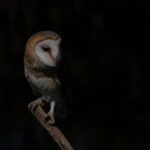Conures and cockatiels are both popular pet birds with distinct personalities. Conures are known for their playfulness and noise level, while cockatiels are recognized for their gentle and affectionate nature.
Choosing between a conure and a cockatiel comes down to personal preferences and lifestyle compatibility. Conures, with their vibrant feathers and energetic demeanor, make lively companions but may require more attention and can be quite vocal. They’re part of the parrot family and can display a wide vocabulary, mimicking sounds and words.
On the other hand, cockatiels are more low-key and can charm owners with their whistling abilities and sweet disposition. These birds are smaller than most conures, making them easier to manage for new bird owners. Prospective pet owners should consider their household environment, available interaction time, and tolerance for noise when deciding between these two delightful feathered friends. Both species thrive on social interaction and enrichment, and with proper care, they can provide years of companionship.

Credit: www.petco.com
Introduction To Conures And Cockatiels
Introduction to Conures and Cockatiels: If you’re exploring the world of avian companionship, you might find conures and cockatiels topping the list. These vibrant birds bring a blend of color, personality, and melody to any home. Deciding between these feathered friends requires an understanding of their unique traits.
Popular Choices For Pet Birds
When seeking a feathered companion, many bird lovers choose between conures and cockatiels. Each bird boasts differences in appearance, temperament, and care needs. Conures, known for their vivid plumage and sociable nature, often win hearts with playful antics. Cockatiels, recognized by their crest and muted tones, charm owners with their gentle demeanor.
- Conures: Bright, engaging, and full of energy.
- Cockatiels: Gentle, affectionate, and easy to train.
Initial Considerations For Potential Owners
Embarking on pet ownership demands careful thought. Space, time, and budget play substantial roles in deciding if a conure or cockatiel fits your lifestyle. Assess the bird’s lifespan, potential vocalization, and daily care to ensure a harmonious match.
| Factor | Conures | Cockatiels |
|---|---|---|
| Lifespan | Up to 30 years | Up to 20 years |
| Space Needed | Larger cage required | Medium-sized cage suitable |
| Time with Owner | Daily interaction necessary | Enjoy socializing but can be independent |
| Vocalization | Loud; diverse sounds | Quieter; whistling and chirping |
| Budget Considerations | Higher cost for care | More economical |
Physical Characteristics Compared
Welcome to the vibrant world of pet birds, where Conures and Cockatiels light up the aviary with their striking features. Diving into their physical characteristics uncovers the beauty and diversity among feathered friends. Let’s compare these feathery companions by size and appearance.
Size And Appearance Of Conures
Conures stand out with their compact bodies and long tail feathers. When imagining these characteristic birds, picture a dazzling rainbow. Their colors vary widely, with greens, yellows, and reds painting their plumage.
An average Conure measures about 10 to 20 inches in length, from beak to tail. Their wingspan can stretch up to a sizable 12 inches, presenting a lovely display in flight. They weigh between 60 to 170 grams, a pleasant heft in your palm.
- Lively in nature and look
- Blend of bright colors
- Long, tapered tail feathers
Visually, Conures are a true testament to nature’s palette, with breeds like the Sun Conure showcasing a vibrant mix that captures the essence of a tropical sunrise.
Size And Appearance Of Cockatiels
Cockatiels, often recognized by their distinctive head crest, exude elegance. These birds wear a more neutral, yet sophisticated color scheme. Their primary colors are gray, white, and yellow.
Typically, Cockatiels span about 12 to 13 inches in length. With a slighter build than Conures, they offer a delicate beauty. Their wings, when extended, showcase an impressive spread of 20 inches.
| Cockatiel Traits | Distinguishing head crest | Elegant color patterns |
|---|---|---|
| Size | 12 to 13 inches | Weight: 90 to 120 grams |
Renowned for their charming crests that rise and fall with their emotions, Cockatiels carry an air of quiet sophistication. Their rounded tails also attribute to their graceful silhouette.
In the debate of Conures versus Cockatiels, each bird brings its own stunning visuals to the table. Both species add a splash of natural wonder to any environment making them beloved by bird enthusiasts worldwide.
Personality And Behavior
Exploring the unique personalities and behaviors of pets is vital for a happy human-animal bond. With birds like conures and cockatiels, personality traits can greatly influence your decision. These colorful and charming feathered friends offer distinct temperaments, making each interaction a unique experience. Let’s delve into the vibrant world of conure and cockatiel behavior.
Temperament Of Conures
Conures are known for their spunky and sociable nature. They are the life of the party, often seeking attention and interaction from their human families. Their playful antics include mimicking sounds and enjoying various toys. These birds thrive on companionship, meaning they require ample time outside of their cage to socialize. It’s common for them to form strong bonds with their owners, displaying affection through cuddling and gentle nibbling. Yet, they can be feisty; their spirited personality sometimes leads to nippiness, especially if not properly trained or if they feel neglected.
- Bubbly and outgoing
- Craves attention and interaction
- Playful, loves mimicking
- Requires socialization and bonding time
- May become nippy without proper care
Temperament Of Cockatiels
Cockatiels, contrastingly, are the gentle souls of the bird world. They offer a more relaxed companionship. These birds are affectionate and love to be in close proximity to their owners, often content sitting on a shoulder or being gently stroked. While they can learn to whistle and mimic sounds, they are generally not as vocal as conure parrots. A well-socialized cockatiel is friendly, rarely bites, and can be a great pet for families. Their calm demeanor makes it easier to handle them, even for novice bird owners.
- Gentle and affectionate
- Happy sitting with owners
- Can whistle and mimic sounds
- Friendly and rarely bites
- Ideal for first-time bird owners

Credit: www.amazon.com
Housing And Space Requirements
Welcome to the lively world of bird companionship! Picking the perfect feathered friend comes with deciding on the ideal living space. Birds need room to spread their wings, play, and explore. Two popular, charming pet options are Conures and Cockatiels. Their housing and space requirements need careful attention to ensure happy, healthy birds. Let’s dive into what size cage each bird species requires and how to create a comfortable home for them.
Cage Size For Conures
Conures, known for their vivid plumage and sociable nature, require a spacious cage to accommodate their activity levels. Ideally, the minimum cage size is:
- 24 inches wide
- 24 inches deep
- 30 inches high
Consider larger cages if space allows. The cage should feature horizontal bars for climbing and room for toys. A variety of perches of different materials and diameters supports foot health.
Cage Size For Cockatiels
Cockatiels, with their enchanting crest and whistling, are naturally curious and benefit from space to roam. Look for a cage with minimum dimensions of:
| Width | Depth | Height |
|---|---|---|
| 20 inches | 20 inches | 24 inches |
Extra space permits freedom of movement and room for essential accessories. Vertical height is important as Cockatiels enjoy climbing and sitting up high.
Both Conures and Cockatiels need daily out-of-cage time. A secure, bird-proof area enriches their environment. Toys, interaction, and exploration outside their cage are vital for mental stimulation.
Diet And Nutrition Essentials
Choosing the right diet for pet birds ensures their health and happiness. Conures and Cockatiels have different nutritional needs. It’s important to understand these to care for each bird properly. Let’s dive into their diet and nutrition essentials.
Feeding Conures: What To Know
Conures thrive on a varied diet. It should include fresh fruits and vegetables. These birds also need a good quality pellet mix. Here’s what you need to know:
- Fruits and veggies: Offer daily. Include options like berries, apples, carrots, and leafy greens.
- Pellets: Make up about 60-70% of their diet. Choose a pellet that’s sized right for conures.
- Seeds and nuts: Serve in moderation. Seeds are high in fat. Nuts are good for training rewards.
- Water: Always provide clean water. Change it every day to prevent bacteria growth.
Feeding Cockatiels: Best Practices
Cockatiels benefit from a diet that’s lower in fat than conures. They require consistent, balanced meals. Follow these best practices:
- Pellet-based diet: Should make up about 70-80% of their food. Ensure it’s a low-fat formula.
- Fresh foods: Daily fresh offerings. Focus on leafy greens, vegetables, and occasional fruit.
- Calcium: Provide a cuttlebone or mineral block. Essential for healthy bones and egg laying.
- Water: Access to fresh water is crucial. Like conures, change it daily to maintain hygiene.
Socialization And Bonding
Choosing between a conure and a cockatiel often depends on their social skills. Both are known for their unique ways of bonding with humans. This section explores how each bird interacts with their human families.
Interacting With Conures
Conures are vibrant and active birds. They crave interaction and form close bonds with their owners. These birds need daily socialization, and here’s how to achieve that:
- Engage in play: Use bird-safe toys to stimulate their active personalities.
- Train regularly: Practice simple tricks to enhance your bond.
- Keep them involved: Allow them to be part of your daily activities.
Remember, conures can become noisy when seeking attention. It’s essential to establish a routine to prevent excessive squawking.
Interacting With Cockatiels
Cockatiels are more relaxed compared to conures. They express their affection differently:
- Whistle or mimic sounds: Cockatiels enjoy a calm interaction like whistling tunes.
- Gentle petting: They love gentle head scratches.
- Peaceful time together: Quietly sitting with your bird can strengthen your bond.
Positive reinforcement works well for these birds. Treats can encourage them to socialize more with you.
Health And Lifespan
Both Conures and Cockatiels are beloved for their vibrant personalities and affectionate nature. Understanding their health requirements and life expectancy is critical for prospective pet owners. These beautiful birds have different lifespans and may encounter various health issues. Knowing these can help ensure a long, happy life for your feathered friend.
Common Health Concerns In Conures
- Feather Plucking: A sign of stress or boredom.
- Psittacine Beak and Feather Disease (PBFD): Affects feathers and immune system.
- Conure Bleeding Syndrome: Clotting issues resulting in excessive bleeding.
- Respiratory Infections: Could cause breathing difficulties.
Common Health Concerns In Cockatiels
- Obesity: From lack of exercise or overfeeding.
- Respiratory Infections: Dust from their feathers aggravate the condition.
- Night Frights: May cause injuries if the bird flaps wildly.
- Foot Problems: Indicates poor cage setup or nutrition.
Conures may have a lifespan of up to 20 years with proper care, whereas Cockatiels can live up to 15 years or more. Regular check-ups with an avian vet and a nourishing diet contribute to their longevity. Also, a safe environment and mental stimulation play crucial roles in their overall health.

Credit: www.somerzby.com.au
Exercise And Enrichment Activities
Conure and Cockatiel owners often explore ways to keep their feathered friends happy and healthy. Exercise and enrichment activities play a crucial role in their well-being. These activities keep birds mentally sharp and physically fit, mimicking the challenges they would face in the wild. Let’s dive into some creative ways to stimulate both Conures and Cockatiels.
Stimulating A Conure’s Mind And Body
Conures are energetic and intelligent birds that require regular mental and physical stimulation. Providing a variety of activities is key to preventing boredom and possible behavioral issues.
- Puzzle feeders to promote problem-solving skills.
- Flight exercises in a safe, enclosed space.
- Training sessions for tricks and commands.
- Foraging toys to similate natural food searching.
Enrichment Ideas For Cockatiels
Although slightly less active than Conures, Cockatiels still enjoy a range of exercises and games. Gentle yet engaging activities can do wonders for their mindset.
- Chewable toys for beak health and satisfaction.
- Mirror toys to stimulate social interaction.
- Gentle music for auditory stimulation.
- Leafy branches for climbing and exploration.
Both Conures and Cockatiels blossom with regular physical activity and intriguing challenges. Find the balance between relaxation and excitement with these enrichment ideas, tailoring them to your bird’s personality and preferences!
Cost Of Ownership
Exploring the costs involved in owning a pet bird is crucial before making a decision. The cost of ownership for a Conure or a Cockatiel varies significantly. It includes initial costs, food, and long-term care. In this section, let’s break down these expenses to help you budget adequately.
Budgeting For A Conure
Conures are vibrant and active pets but come with associated costs. Here are essential points to consider for your budget:
- Initial Purchase: Conures cost around $150 to $500.
- Cage: A sturdy cage is vital. Expect to pay $100 to $300.
- Accessories: Toys and perches will be about $50 to $100.
- Food: Quality feed ranges from $20 to $40 monthly.
- Vet Visits: Annual checkups are roughly $85 to $200.
Remember, emergencies happen. Set aside an extra fund just in case.
| Expense | Cost |
|---|---|
| Initial Purchase | $150 – $500 |
| Cage | $100 – $300 |
| Accessories | $50 – $100 |
| Food | $240 – $480 (yearly) |
| Vet Visits | $85 – $200 (per visit) |
Budgeting For A Cockatiel
Cockatiels are smaller parrots and generally less expensive. Here’s a breakdown of Cockatiel costs:
- Initial Purchase: These birds can be $80 to $250.
- Cage: A suitable cage may cost between $50 and $200.
- Accessories: Allocate $30 to $70 for toys and perches.
- Food: Feed expenses run from $15 to $30 monthly.
- Vet Visits: Regular visits are estimated at $50 to $150.
Insurance for Cockatiels can also be considered, adding to monthly costs.
| Expense | Cost |
|---|---|
| Initial Purchase | $80 – $250 |
| Cage | $50 – $200 |
| Accessories | $30 – $70 |
| Food | $180 – $360 (yearly) |
| Vet Visits | $50 – $150 (per visit) |
A proper budget ensures your feathered friend stays happy and healthy. Carefully consider these numbers when choosing between a Conure and a Cockatiel.
Making The Decision
Choosing between a Conure and a Cockatiel as a feathered friend is exciting. Both birds bring joy with their unique qualities. Each has distinctive needs and personalities. The right choice depends on your lifestyle and preferences. Let’s explore the key factors to help make an informed decision.
Factors To Consider Before Choosing
Consider these points carefully:
- Lifespan: Can you commit for many years? Conures live up to 30 years, whereas Cockatiels can reach 20.
- Space Requirements: Conures need more room. Ensure enough space for a larger cage and play area.
- Time Investment: Both birds require daily interaction. Assess your availability for socializing.
- Sound Levels: Mindful of noise? Cockatiels are generally quieter than Conures.
- Care and Maintenance: Every pet requires regular care. Be ready for feeding, cleaning, and vet visits.
Where To Adopt Or Purchase Your Bird
Options for finding your new companion:
| Purchase Location | Pros | Cons |
|---|---|---|
| Breeder | High-quality, healthy birds. Breeder support. | May be more expensive. |
| Pet Store | Convenient. Variety of birds. | Possible health issues. |
| Rescue Center | Supporting a good cause. May find an older bird. | Unknown medical history. |
Always choose reputable sources. Confirm health guarantees. Visit multiple places. Observe the birds’ conditions.
Testimonials From Owners
Welcome to the heartwarming section of our bird-loving community—the ‘Testimonials from Owners’. In these testimonials, you’ll dive into the daily joys and challenges that come with caring for two of the most popular pet birds: Conures and Cockatiels. Real stories from owners reveal the unique personalities, habits, and quirks of these feathered companions. Let’s hear directly from the owners about their experiences, giving you invaluable insights into what life is truly like with these charming birds.
Life With A Conure
Conures are known for their playful energy and endless curiosity. Owners share that life with a Conure means having a mini acrobat at home. This bird loves to hang from toys and show off its tricks. Each day brings laughter and joy with a Conure around. They need attention, so be ready to spend time playing and interacting with your feathery friend.
Owners often express how Conures form strong bonds. These birds crave your company and can become quite affectionate. Many Conure parents have a regular routine of cuddles and talk time. They can be noisy with their chatter but it’s all part of their charm. The table below highlights the top sentiments:
| Quality | Owner Experience |
|---|---|
| Sociability | Loves to be with people, makes friends easily. |
| Playfulness | Engages in games, mimics sounds and movements. |
| Noisiness | Vocal throughout the day, but also a source of entertainment. |
Life With A Cockatiel
Cockatiels charm their owners with their gentle and affectionate nature. These birds often form a tight-knit bond with their family. They are sweet-tempered and easier on the ears compared to Conures. Cockatiel owners love to share stories about their birds’ whistles and soft chirps. These birds are known for their ability to mimic tunes, creating a musical home environment.
Life with a Cockatiel also means appreciating their expressive crests. The crest signals their mood, which adds to the bird’s personality. Owners mention the importance of routine in a Cockatiel’s life. They thrive when they know what to expect each day. See the key experiences with Cockatiels outlined below:
- Gentle companionship is a guarantee.
- They require regular interaction but can also enjoy some independent play with their toys.
- Moderate noise levels make them suitable for different home environments.
Conclusion: Which Is Your Feathered Friend?
Deciding between a conure and a cockatiel is a choice that involves lifestyle fit and personal preference. Both birds bring their own unique set of qualities to the table. It’s about finding the feathered companion that resonates with you and your home environment.
Summary Of Comparison
Size: Conures are generally larger than cockatiels.
Personality: Conures are playful and energetic, while cockatiels are more laid back.
Lifespan: Both can live for 15-20 years with proper care.
Noise levels: Conures tend to be louder than cockatiels.
Maintenance: Conures might need more social interaction and stimulation.
Color Varieties: Cockatiels have different color mutations; conures have vibrant feathers.
Next Steps After Choosing Your Pet Bird
After picking your new bird, prep for its arrival. Consider these steps:
- Buy a cage: Ensure it’s spacious and safe.
- Prepare a diet plan: Balance seeds, fruits, and vegetables.
- Set up a vet visit: Regular check-ups are key.
- Plan daily interaction: Bonding is vital for happiness.
- Gather supplies: Perches, toys, and water dishes are must-haves.
Bringing a bird home is just the first step in a rewarding journey. Care, bonding, and learning each other’s quirks come next. Whether you choose the vibrant conure or the charming cockatiel, you’re in for a delightful adventure with your new feathered friend!
Conclusion
Deciding between a conure and a cockatiel is a personal choice. Each bird boasts its own charm and set of requirements. Consider lifestyle, space, and time when choosing your feathered companion. Both birds promise to bring joy and vibrant energy into your home.
Your perfect pet awaits – choose wisely for years of companionship.
Ryan Everhart is a passionate bird enthusiast and blogger, primarily writing on his website, Avian Whispers. His journey into the world of bird blogging began with a deep interest in parrots, a species that captivated his attention for their intelligence and social behavior. Over time, his content expanded to cover a broader range of bird species, offering insights into bird behavior, care, habitats, and conservation.
Ryan is dedicated to educating his audience, which includes both new bird owners and seasoned enthusiasts. His writing is filled with personal experiences, expert knowledge, and practical advice on bird care. Through Avian Whispers, he aims to foster a deeper appreciation for birds, emphasizing their role in nature and the joys of having them as pets.
Starting with articles focused on parrots, Ryan’s work now encompasses a diverse range of topics such as feeding, training, habitat enrichment, and bird health. His love for birds extends beyond parrots, diving into various avian species. His informative and heartfelt writing reflects his commitment to the well-being of birds and the desire to help others connect with these creatures.
As a growing voice in the bird blogging community, Ryan strives to provide a platform where bird lovers can learn, share experiences, and connect over a shared passion for avian life. His blogs are not only educational but also serve as a reminder of the importance of protecting and nurturing the bond between humans and birds.




